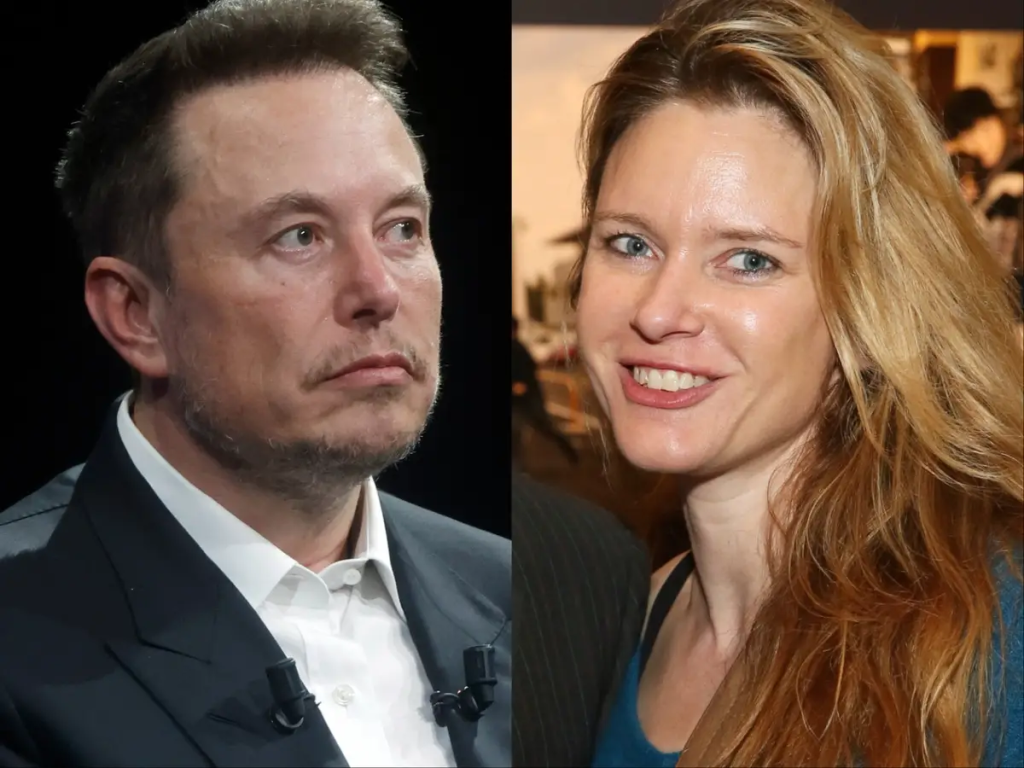Why Justine Musk Didn’t Walk Away with Tesla or SpaceX Shares After Her Divorce from Elon Musk
Justine Musk, Elon Musk’s first wife and the mother of five of his surviving children, was once closely connected to the formative years of two of the most iconic companies in modern history: Tesla and SpaceX. Yet, despite that proximity and her central role in Musk’s personal life during the crucial early days of his career, Justine ended up with no ownership stake in either company following their 2008 divorce.

This outcome is particularly striking when viewed through the lens of Silicon Valley’s wealth dynamics. Elon Musk’s fortune, which now ranks among the largest on the planet, is built almost entirely on his equity in Tesla and SpaceX , companies valued in the hundreds of billions. The question of why Justine, who raised a large family with Musk and supported him through early entrepreneurial struggles, received none of that equity is a revealing case study in divorce law, founder strategy, and wealth protection.
The Marriage and the Early Years of Tesla and SpaceX
Elon and Justine married in 2000, long before Tesla was founded in 2003 or SpaceX in 2002. During their marriage, the Musks endured financial pressures, a devastating personal tragedy with the loss of their first child, and the demanding rise of Elon’s ventures. Justine, a novelist by profession, described herself as taking on the role of a traditional spouse while Elon’s focus was squarely on building companies that were often running on the edge of collapse.
By the time they divorced in 2008, Tesla was still not yet profitable and had not delivered a production car to the public, while SpaceX had just barely survived a series of failed rocket launches. Despite their volatile outlook at the time, both companies would later become wildly successful , but by then, Justine had no financial ties left to them.
The Divorce Settlement
When the couple parted ways, Justine reportedly sought stakes in both Tesla and SpaceX during the settlement negotiations. Elon Musk refused. Instead, the agreement provided her with a relatively traditional financial package: a $2 million lump sum, a residence, and $20,000 per month in child support, adjusted for inflation. While significant by average standards, this figure is dwarfed by the multi-billion-dollar valuations that Musk’s companies would eventually reach.
This outcome was shaped not only by Musk’s negotiating stance, but also by the nature of marital asset division in California , a community property state. In principle, assets accumulated during the marriage are split equally. However, equity in private companies, especially those structured with strict internal controls and valuations that are difficult to assess, can be tightly guarded.
Founders often shield corporate equity through legal and financial structures designed to prevent dilution or forced transfers. These mechanisms can make it difficult for divorcing spouses to claim ownership in a startup’s stock, especially if it’s still private and highly illiquid. If there was a prenuptial agreement or strategic use of trusts or corporate bylaws, these would have further complicated Justine’s ability to secure shares.
Musk’s Relentless Control of Equity
Elon Musk has always maintained a tight grip on his companies. At both Tesla and SpaceX, he is known for resisting the dilution of his holdings and exercising aggressive control over company governance. His refusal to give Justine equity was in keeping with that approach , ensuring his personal and business empire remained consolidated under his own direction.
This decision had long-term consequences: Tesla went public in 2010, making early shareholders massively wealthy. SpaceX, still private but among the highest-valued startups in the world, continues to drive up Musk’s net worth. Meanwhile, Justine, though financially stable and publicly active, is nowhere near the billionaire ranks.
A Rare Outcome in Billionaire Divorces
The contrast between Justine Musk’s outcome and those of other spouses in tech divorces is notable. MacKenzie Scott, for instance, received 4% of Amazon in her 2019 divorce from Jeff Bezos , making her one of the wealthiest women in the world overnight. Priscilla Chan, married to Mark Zuckerberg, also has extensive access to the Meta founder’s wealth and plays a major role in its philanthropic direction.
Justine’s case stands out because she received no piece of the future upside , no equity, no board seat, no passive income from Musk’s corporate success. While Musk has since gone on to multiple relationships and a growing family, the mother of his first five surviving children was essentially cut off from the immense generational wealth that followed.